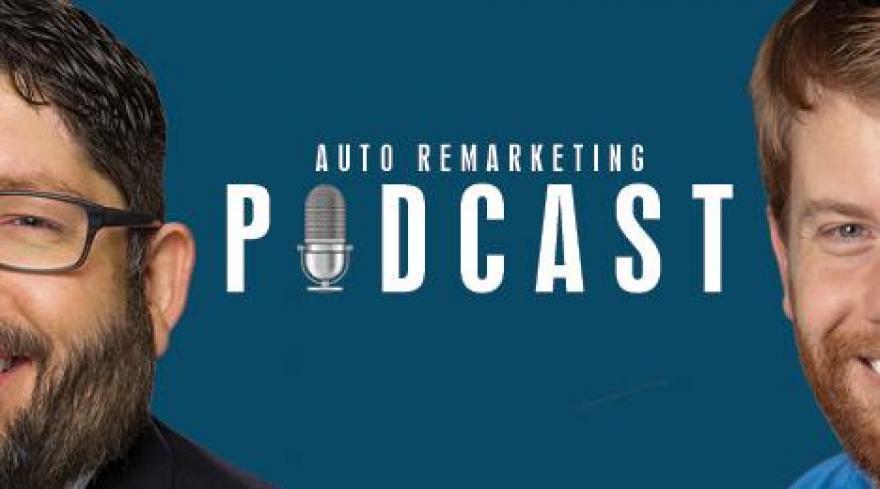As the subprime auto finance company collected another workplace award, Credit Acceptance Corp. also announced an update this week involving its latest securitization.
Credit Acceptance completed a $500.0 million asset-backed non-recourse secured financing. Pursuant to this transaction, the company contributed approximately $625.1 million of loans to a wholly-owned special purpose entity that will pledge the loans to an institutional lender under a loan and security agreement.
The company said the financing has three characteristics, including:
— Bear interest at 3.13%
— Revolve for 36 months after which it will amortize based upon the cash flows on the contributed loans
— Be used by Credit Acceptance to repay outstanding indebtedness and for general corporate purposes.
Credit Acceptance explained it will receive 6.0% of the cash flows related to the underlying consumer loans to cover servicing expenses. The remaining 94.0%, less amounts due to dealers for payments of dealer holdback, will be used to pay principal and interest to the institutional lender as well as the ongoing costs of the financing.
“The financing is structured so as not to affect our contractual relationships with our dealers and to preserve the dealers’ rights to future payments of dealer holdback,” the company said.
Another workplace honor
In other company news, Credit Acceptance said it has been selected once again as one of Metropolitan Detroit’s Best and Brightest Companies to Work For. The announcement marks the eighth straight year that the company has received this honor.
Furthermore, this is the sixth workplace award that Credit Acceptance has received this year with the others being:
— FORTUNE 100 Best Companies to Work For (last six years in a row)
— Best Workplaces in Financial Services & Insurance (last five years in a row)
— Forbes Global 2000 List
— Best Workplaces for Millennials (four out of last five years)
— Crain’s Fast 50 (last six years in a row)
To see the complete 2019 List of Metropolitan Detroit’s Best and Brightest Companies to Work For, visit thebestandbrightest.com.
If your non-prime portfolio performance is experiencing some cyclical turbulence this summer, it appears you might not be alone.
This week, Kroll Bond Rating Agency (KBRA) released its auto loan indices for July, reporting on delinquency roll rates from asset-level disclosures. Analysts said servicer reports showed mixed results across securitized prime and non-prime auto loan pools in July.
KBRA indicated that annualized net losses and 60-day delinquencies in KBRA’s prime auto loan index rose 10 basis points and 3 basis points month-over-month to 0.56% and 0.42%, respectively.
However, on a year-over-year basis, analysts discovered net losses and delinquency rates improved, falling 8 basis points and 1 basis point versus July of last year. This past month marked the 18th consecutive reporting period in which net losses and delinquency rates have fallen year-over-year within the index.
“Favorable year-over-year performance can be attributed to both index mix shift and tighter underwriting from a number of the prime issuers included in our index,” analysts said in the latest report.
Meanwhile, collateral performance in KBRA’s non-prime auto loan index underperformed last month.
Analysts found that annualized net losses rose 67 basis points month-over-month and 25 basis points year-over-year to 7.30%. Furthermore, the percentage of borrowers that were 60 days or more past due increased to 4.41%, up 59 basis points versus the previous month and 67 basis points compared to last July.
“The month-over-month deterioration in index performance was likely driven by seasonal factors as the benefit of tax refunds has already dissipated and borrowers are spending on summer travel,” KBRA said.
And it also might be looking like some contract holders are taking a vacation rather than getting caught up on their payments in their behind on their monthly commitments.
KBRA shared that an analysis of July’s loan-level data showed deteriorating credit conditions as the percentage of prime and non-prime borrowers who went from 60-plus days delinquent to current came in at 21.7% and 14.2%, respectively, down from 21.8% and 16.2% during the previous month.
Meanwhile, analysts pointed out the percentage of borrowers who were 60+ days delinquent to start July— and were subsequently charged-off by the end of the month — registered at 14.0% for prime loans and 23.4% for non-prime loans. These metrics are down slightly from the 14.3% and 24.1%, respectively, of seriously delinquent contracts that were charged-off in the previous month.
“Notably, although non-prime charge-offs have remained fairly steady over the past year, the decline in the 60-plus day cure rate is somewhat concerning as it could lead to increased losses in the coming months,” analysts said.
“This trend appears to be consistent across all three of the issuers that report loan-level data — (AmeriCredit, DriveTime and Santander Consumer USA) — and is certainly worth continued monitoring,” analysts went on to say.
Typically, the most risk in auto loan asset-backed securities (ABS) resides in the subprime space stemming from the lower credit tiers connected to that paper. Well, S&P Global Ratings is seeing risk grow within prime ABS, too.
Because finance companies are addressing consumers’ shifting preference for larger, more expensive vehicles by extending contract terms up to 84 months, the newest report from S&P Global Ratings explained those term modifications increase credit risk and are causing losses to be more back-loaded in U.S. prime ABS.
“We believe longer-term loans will become increasingly popular among the auto manufacturers' captive finance companies, and these entities will join certain banks in including 84-month loans in their ABS,” S&P Global Ratings said.
“As the percentage of longer-term loans increase in U.S. prime retail auto loan securitizations, S&P Global Ratings will continue to analyze static pool vintage performance by loan term and adjust its expected loss levels on the pools accordingly,” the firm continued.
“To the extent that these loans represent greater risk for an issuer's pools, our expected cumulative net losses are likely to increase, which could result in higher credit enhancement levels,” the firm went on to say.
According to Experian, the most common term for a new vehicle is now 72 months with terms in the 73-84 month range now representing 30% of new-vehicle origination volume as of the fourth quarter. The report elaborated why that backdrop can be especially problematic in the new-vehicle financing space as finance companies fill securitizations with elongated contracts.
“Credit risk could increase as the amount of longer-term loans in these pools rises. Because new vehicles depreciate rapidly, especially in the first three years, the loan balance often exceeds the depreciated value of the vehicle for the first few years. Therefore, absent a large down payment, the severity of loss upon a repossession is generally substantial (40%-50%). To the extent that loan terms lengthen, the severity of loss could increase due to the slower amortization of the loan balance,” S&P Global Ratings said in the report shared with SubPrime Auto Finance News.
“Additionally, because longer-term loans delay the point at which a borrower starts to build equity in the vehicle (and could sell it to repay the loan), the borrower may have less incentive to continue making payments on the vehicle in the event of financial distress. Moreover, longer loan tenors increase the likelihood of the borrower experiencing a job loss or a medical emergency while the loan is outstanding. These and other such events jeopardize the borrower's ability to make payments on time and in full,” the report went on to say.
The complete report can be secured here.
Coinciding with the release of its second-quarter performance, Consumer Portfolio Services also discussed a structural reorganization of sales representatives and origination staff to cater to dealerships in its origination network more effectively.
CPS reported this week that it closed the second quarter with more than 8,000 active dealers booking paper with the subprime finance company. CPS leverages a staff of approximately 250 employees located at three branches in Irvine Calif., Las Vegas and Orlando, Fla.
In an effort to improve dealer service and product “usability,” CPS said in a message to SubPrime Auto Finance News that it has reorganized its staff. Prior to making this alignment change, CPS explained dealers would generally be connected to the next available buyer from a pool when they contacted the finance company. With the re-alignment in place, CPS said dealers will work with the same staff on each of their applications and loan packages.
“Our goal is to have dealers working with the same loan origination staff at CPS whenever possible,” said Teri Robinson, who is senior vice president of originations at CPS.
“We expect this move to strengthen dealer relationships and build familiarity for dealers with CPS, plus help our staff get to know dealers better,” Robinson continued. “Dealers need support, flexibility and quick answers to their questions when they contact CPS. We’re confident they will like our improved alignment strategy.”
Q2 results as revenue drops, costs decrease
Also this week, CPS announced earnings of $1.8 million, or $0.08 per diluted share, for its second quarter that ended June 30. This figure compares to net income of $3.2 million, or $0.13 per diluted share, in the second quarter of last year.
The company reported its Q2 revenues came in at $86.3 million, a decrease of $13.0 million, or 13.1%, compared to $99.4 million for the second quarter of 2018. However, the company trimmed its costs as CPS said its total operating expenses for the second quarter were $83.6 million, compared to $94.7 million a year earlier.
CPS noted its Q2 pretax income for the second quarter of 2019 was $2.8 million, which represented a drop of 40.5%.compared to pretax income of $4.7 million in the second quarter of last year.
For the first six months of 2019, CPS tallied up its total revenues of $174.6 million, which were down compared to $202.9 million for the six months of 2018. That’s a decrease of approximately $28.4 million or 14.0%.
CPS pointed out its total expenses for the first six months of 2019 were $169.1 million, a decrease of $24.6 million, or 12.7%, compared to $193.7 million for the six months of 2018.
The company’s pretax income for the first six months of 2019 came in at $5.4 million, compared to $9.2 million for the same period in 2018. Net income through the first half of 2019 was $3.5 million compared to $6.3 million a year earlier.
During the second quarter of 2019, CPS said it purchased $250.1 million of new contracts compared to $243.0 million during the first quarter of 2019 and $214.7 million during the second quarter of last year.
The company's receivables totaled $2.399 billion as of June 30, an increase from $2.393 billion as of March 31 and $2.329 billion as of June 30 of last year.
CPS mentioned its annualized net charge-offs for the second quarter constituted 7.82% of the average portfolio as compared to 7.58% for the second quarter of last year. Its delinquencies greater than 30 days (including repossession inventory) represented 14.83% of the total portfolio as of June 30 as compared to 10.07% as of June 30 last year.
“We are pleased to report that this quarter represented our fourth consecutive quarter of year over year increases in quarterly originations volume,” said Charles Bradley, Jr., chairman and chief executive officer.
“In addition, since Q3 of 2018, we have seen consecutive quarterly increases in the coupon rates on new receivables and lower fees paid to dealers,” Bradley added in a news release.
CPS announces $243.5M senior subordinate asset-backed securitization
And in other company news released this week, CPS also announced the closing of its third term securitization of 2019. The transaction is CPS’ 33rd senior subordinate securitization since the beginning of 2011 and the 16th consecutive securitization to receive a triple-A rating from at least two rating agencies on the senior class of notes.
In the transaction, the finance company qualified institutional buyers purchased $243.5 million of asset-backed notes secured by $244.1 million in automobile receivables originated by CPS.
The sold notes, issued by CPS Auto Receivables Trust 2019-C, consist of six classes. Ratings of the notes were provided by Standard & Poor’s and DBRS, and were based on the structure of the transaction, the historical performance of similar receivables and CPS’s experience as a servicer.
| Note Class |
Amount
(in millions) |
Interest Rate |
Average Life
(years) |
Price |
S&P Rating |
DBRS Rating |
| A |
$105.1 |
2.55% |
.67 |
99.99782% |
AAA |
AAA |
| B |
$41.5 |
2.63% |
1.79 |
99.99392% |
AA |
AA |
| C |
$35.4 |
2.84% |
2.50 |
99.97830% |
A |
A |
| D |
$31.2 |
3.17% |
3.31 |
99.99390% |
BBB |
BBB |
| E |
$24.7 |
4.30% |
4.05 |
99.98450% |
BB- |
BB |
| F |
$5.6 |
6.94% |
4.14 |
99.98681% |
B |
B |
CPS said the weighted average coupon on the notes is approximately 3.36%.
The finance company mentioned the 2019-C transaction has initial credit enhancement consisting of a cash deposit equal to 1.00% of the original receivable pool balance and over-collateralization of 0.25%.
CPS added the transaction agreements require accelerated payment of principal on the notes to reach overcollateralization of the lesser of 6.00% of the original receivable pool balance, or 16.00% of the then outstanding pool balance.
The company went on to say the transaction utilizes a pre-funding structure, in which CPS sold approximately $161.1 million of receivables at inception and plans to sell approximately $83.0 million of additional receivables during August.
This further sale is intended to provide CPS with long-term financing for receivables purchased primarily in the month of July, according to the company.
Collateral performance in the subprime U.S. auto loan asset-backed securities (ABS) sector in May was mixed, according to the most recent S&P Global Ratings report.
Analysts discovered subprime auto loan ABS month-to-month declines in both losses and recoveries during May. However, S&P Global noticed losses rose year-over-year and delinquencies increased both month-over-month and year-over-year.
Meanwhile, in the prime space, analysts noticed the data was generally positive in May. Even with recoveries receding, prime losses declined for the month, reaching their lowest level so far this year. S&P Global Rating pointed out this situation is not unusual, however, as losses often reach their lowest annual levels in May.
Overall, prime delinquencies and losses were stable year-over-year, according to the report.
Some of the key takeaways from the report include:
• U.S. prime auto loan credit losses improved month over month to 0.41% from 0.43% and were stable year over year.
• Subprime auto loan losses also improved month over month to 6.34% from 6.60%, but they increased from 6.00% year over year.
• Recoveries weakened month over month for both segments. But while prime recoveries worsened year over year, declining to 66.78% from 70.57%, year-over-year subprime recoveries saw a slight improvement, rising to 48.90% from 48.42%.
• The prime 60-plus-day delinquency rate was essentially flat both month-over-month and year-over-year at 0.36%, but its subprime counterpart increased to 4.51% from 4.31% in April and from 4.29% a year earlier.
“In June, we lowered our expected cumulative net losses for two deals, raised them for nine and maintained them for four,” analysts said. “We also took rating actions on four CPS Auto Receivables Trust transactions and on Sierra Auto Receivables Securitization Trust 2016-1.”
This week, Westlake Financial Services finalized another securitization above $1 billion, setting a new company record in the process.
Westlake announced the closing of its 19th asset-backed securitization (WLAKE 19-2) at $1.2 billion. This latest securitization is the largest ever in Westlake history and the fifth consecutive issuance of more than $1 billion.
“Our largest ever ABS is an indication of our company’s continued growth and increasing market share,” Westlake Financial Services chief financial officer Paul Kerwin said in a news release.
“We expect this growth to continue and plan for another large ABS before the end of the year,” Kerwin continued. “I would like to thank our capital markets and treasury team for executing another successful deal.”
During this securitization, Westlake acknowledged market trade tensions caused a rally in treasuries, leading Libor rates to plummet 0.65% compared to Westlake’s February deal. Despite these factors Westlake pointed out that the company was able to secure investor confidence, with returning investors accounting for 33 of the transaction’s 36 total participants.
“Despite the market pitfalls, Westlake was able to close the ABS with a strong outlook for our investors,” said Franka Bicolli, director of treasury of Westlake Financial Services.
“We added three new investors to our large pool of consistent participants. We also increased our spread concession by 0.08%, placing the overall rate 0.58% lower than our February transaction,” Bicolli continued.
Westlake Financial Services continues to experience growth through its nationwide dealer network. As one of the largest privately held automotive lenders, the company is active in all 50 states plus Puerto Rico, with a dealer base of more than 20,000 franchise and independent dealerships.
Westlake’s current portfolio of $8.3 billion includes originated auto loans and leases, direct-to-consumer loans, portfolio purchases and servicing and dealer floorplan lines of credit.
Colonnade Securities offered an extended examination of the below-prime auto finance industry this week, identifying what the independent investment bank focused on the financial services and business services sectors believes are four factors currently impacting the space most.
According to the report, the fundamentals of the below-prime auto finance industry have not deteriorated significantly, but the sector is now out of favor with traditional financial sponsors. In part, Colonnade cited four factors, including:
— Past aggressive underwriting has led to elevated delinquencies for some firms
— Private equity investors have hit the horizon of disappointment
— Bifurcation of the below-prime auto finance sector
— Access to capital
Colonnade explained a wave of investments in 2010 through 2012 led to heightened competition and looser underwriting, followed by a spike in delinquencies and losses. The result is a significant decrease in new equity capital available to the sector, according to the report.
“While banks that lend to the below-prime auto finance industry are more cautious and selective, senior debt availability remains strong for performing industry participants due, in large part, to the asset-backed securities market,” Colonnade said in a news release.
The investment bank added in the report, “The impact of liberal standards has been revealed in the performance of the asset-based securities issued by a few significant issuers.
Colonnade contends the industry has bifurcated between large providers with total receivables of more than $300 million and small below-prime auto finance firms. Colonnade insisted those large, well-run players continue to grow profitably while a few smaller firms have failed.
“These larger firms have invested in automated credit decisioning and data analytics that reduce static pool losses,” Colonnade said in its report. “The larger firms are also able to hire and retain skilled leaders and technical people needed to implement a tech-forward operation. “In addition, large firms have made significant investments in compliance staff and infrastructure.
“The second segment of the industry consists of smaller players that have not achieved critical mass and do not have the resources to invest in credit/analytic technology,” the bank continued in the report.
Colonnade recapped that few M&A transactions have been completed in recent years, although there have been some capitulations (business exits/liquidations). Several of the large, successful firms are still seeking change of control as their private equity owners run through their investment horizons.
“Sponsor-owned firms will eventually be sold due to the 10-year liquidation schedule of the typical private equity fund,” Colonnade added in its report.
Colonnade expects to see an uptick in mergers and acquisitions activity in the industry over the next 18 months as private equity investors are forced to take their properties to market.
“There will be transactions, but the valuations are unlikely to meet the original expectations of the investors,” the investment bank said in a news release. “These market dynamics will create compelling investment opportunities for long-term, yield-oriented investors, such as family offices and other non-traditional financial sponsors.”
Davis & Gilbert partner Joseph Cioffi reiterated his position that subprime auto finance portfolio performance is expected to deteriorate soon.
Cioffi first made that assertion through a 360-degree market study released by Credit Chronometer, a microsite he authors. Nick asked him to elaborate during this podcast recorded during the National Automotive Finance Association’s annual conference in June in Plano, Texas.
The full episode can be found below.
Download and subscribe to the Auto Remarketing Podcast on iTunes or on Google Play.
You can also listen to the latest episode in the window below.
Catch the latest episodes on the Auto Remarketing Podcast homepage and on our Soundcloud page.
Please complete our audience survey; we appreciate your feedback.
Fitch Ratings is a bit more upbeat about the direction of the auto lease asset backed securities market.
Analysts expect stability in residual value realizations throughout the year, prompting them to revise their wholesale market outlook haircut to neutral from negative for most auto lease asset backed securities (ABS). Despite a 16% jump in auto lease ABS return volume this year, Fitch Ratings explained in a news release that residual values are recording mostly gains across auto lease ABS going into summer.
Fitch Ratings also acknowledged the revision was driven by stronger than expected residual-value performance buoyed by plateauing lease returns expectations, slowing new-vehicle sales, favorable vehicle-return mix and strong demand for the affordability of used vehicles.
Against a backdrop of Fitch’s cautious U.S. economic outlook, Fitch’s outlook on auto lease asset performance is stable for 2019, while the ratings outlook remains positive for subordinate tranches. The revision to neutral from negative is expected to have a limited effect on Fitch expected residual loss levels for rated auto lease ABS tranches.
Analysts explained the wholesale market outlook haircut is just one of five qualitative haircuts that collectively lead to a 15%-25% haircut to Fitch’s base case residual value loss proxies. Further, Fitch’s through-the-cycle residual value loss proxy approach incorporates the most stressed 2008-2009 RV loss performance, which was most stressful for light trucks and SUVs, and results in lease ABS loss coverage levels of 27%-34% for all transactions.
Fitch pointed out that it applied a negative assessment to the wholesale market outlook haircut to all auto lease ABS from 2014 to 2018, reflecting swelling supply and the resultant expectations of downward pressure on residual values. Fitch’s ABS residual value index has seen steady residual maturities, which have not moved far from the peak of $7.4 billion in 2016.
“However, residual values have been stronger than forecast even with mounting vehicle supply, and the used vehicle market continues to absorb record return volumes,” analysts said.
Fitch recapped that its residual value index dipped briefly into nominally low-single digit losses at the end 2016. Today, analysts emphasized that demand for used vehicles remains healthy, with Fitch’s index reporting residual gains of 3.12% as of first-quarter 2019, slightly improved over 2.88% in first-quarter 2018.
Fitch’s residual value ABS index is expected to see lease return volumes peak in 2019 at $8.8 billion up from $7.3 billion in 2018. However, analysts acknowledged residual returns will then have plateaued and Fitch expects a 9% decline in lease maturities in 2020.
“Further, Fitch’s residual maturity expectations are conservatively projected using elevated return assumptions, while actual returns over the last four years have represented 88% of these expectations,” analysts said.
New-vehicle lease penetration was flat at roughly 30% through April, according to Black Book, consistent with a year earlier. Fitch is projecting lease volumes underwritten to decline, given a flat-to-lower sales forecast in 2019, and less demand for leases.
“New-vehicle sales have moderated with the slowing U.S. economy and many manufacturers pulled back on incentives in an effort to align production levels with demand,” said analysts, who are predicting new-vehicle sales of 16.9 million units in 2019, down from 17.3 million recorded in 2018.
Fitch mentioned the strong popularity of new and redesigned SUVs and CUVs resulted in high exposures to these vehicles in 2016 through 2019 vintage ABS transactions. These vehicles comprised an average of 57% of ABS pools in 2017, versus 47% in 2016 and 40% in 2015.
“This trend shows no signs of abating as manufacturers alter lineups to satisfy demand,” analysts said.
“However, these bigger vehicles are expensive and overall new vehicle prices rose significantly to around $33,000, on average currently, according to Black Book,” analysts continued. “This, along with the cost of financing purchases as interest rates rose marginally, shifted consumers to more affordable used vehicles, bolstering residual values.
“Further, smaller cars benefitted as affordability becomes a concern, and most of these vehicles have seen values rebound in late 2018 into 2019, as supply was tight while demand rose off record lows,” Fitch went on to say.
“In addition, as the U.S. economy enters its 10th year of expansion, late cycle macroeconomic concerns mount, and the used-vehicle market becomes more attractive as credit tightens,” the firm added.
On Friday, Kroll Bond Rating Agency shared its latest analysis of the auto asset-backed securities market, noting that May showed mixed credit performance across securitized marketplace.
Analysts reported that annualized net losses in KBRA’s Tier 1 index fell 95 basis points month-over-month but rose 87 basis points year-over-year to 5.06%. KBRA pointed out 60-day delinquency rates increased 8 basis points month-over-month and 23 basis points to 1.28%.
Analysts also determined KBRA’s Tier 2 index showed a similar pattern, with index losses falling 49 basis points month-over-month but rising 38 basis points year-over-year to 11.22%. The number of borrowers 60 days or more past due increased to 2.59%, up 23 basis points versus April and 12 basis points versus May of last year.
Finally, analysts found that annualized net losses in KBRA’s Tier 3 index rose 253 basis points month-over-month to 18.25%, driven by weaker performance in Avant’s 2018 vintage pools. However, KBRA noted that performance remained strong on a year-over-year basis.
Meanwhile, 60-day delinquencies came in at 3.72%, flat compared to the previous month and down 63 basis points versus last year.
KBRA reiterated that contracts in Tier 1 typically include consumers who have weighted average FICO scores between 710 and 740. In Tier 2, those consumer FICO scores often land between 680 and 710, while within Tier 3, they are usually between 630 and 660.
“With the tax refund season now behind us, we expect performance to slowly deteriorate through the summer months,” said Brian Ford, who oversees structured finance research for KBRA in the latest report that’s available here.












